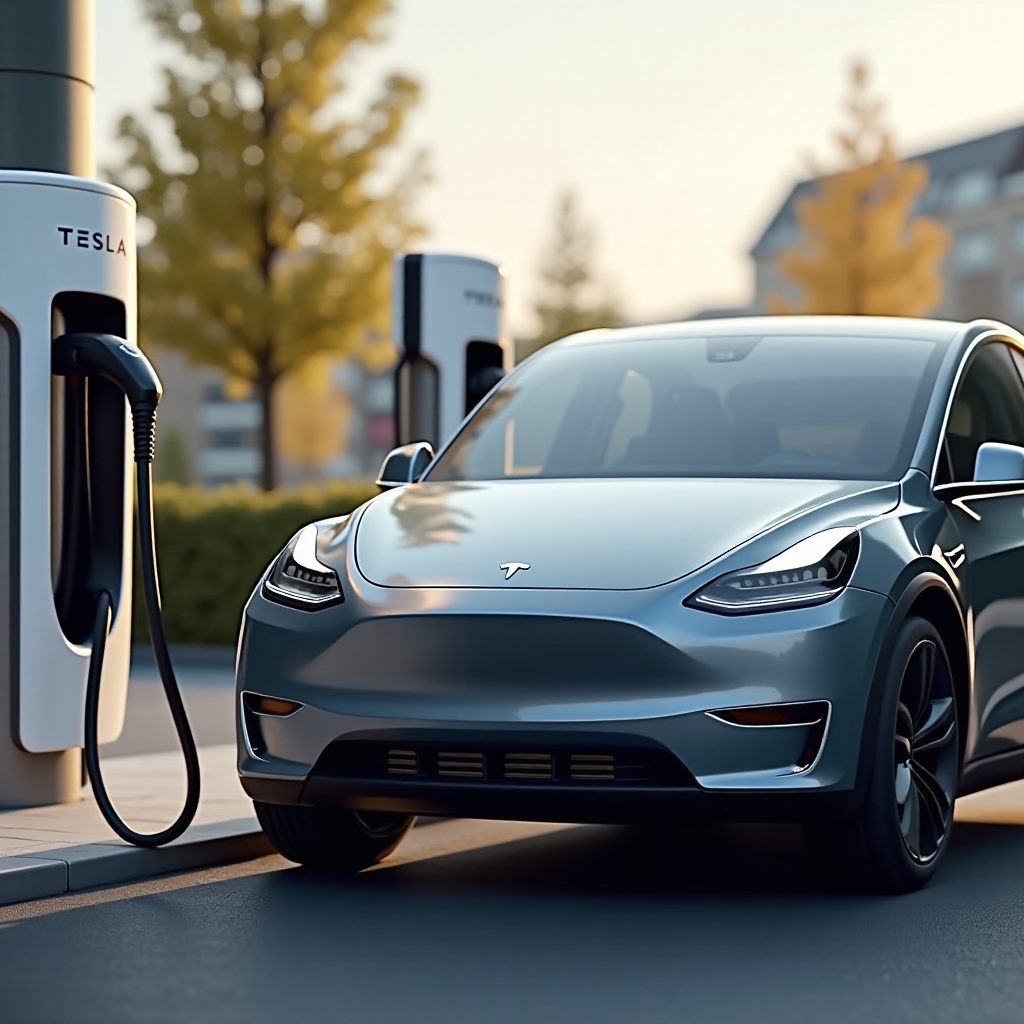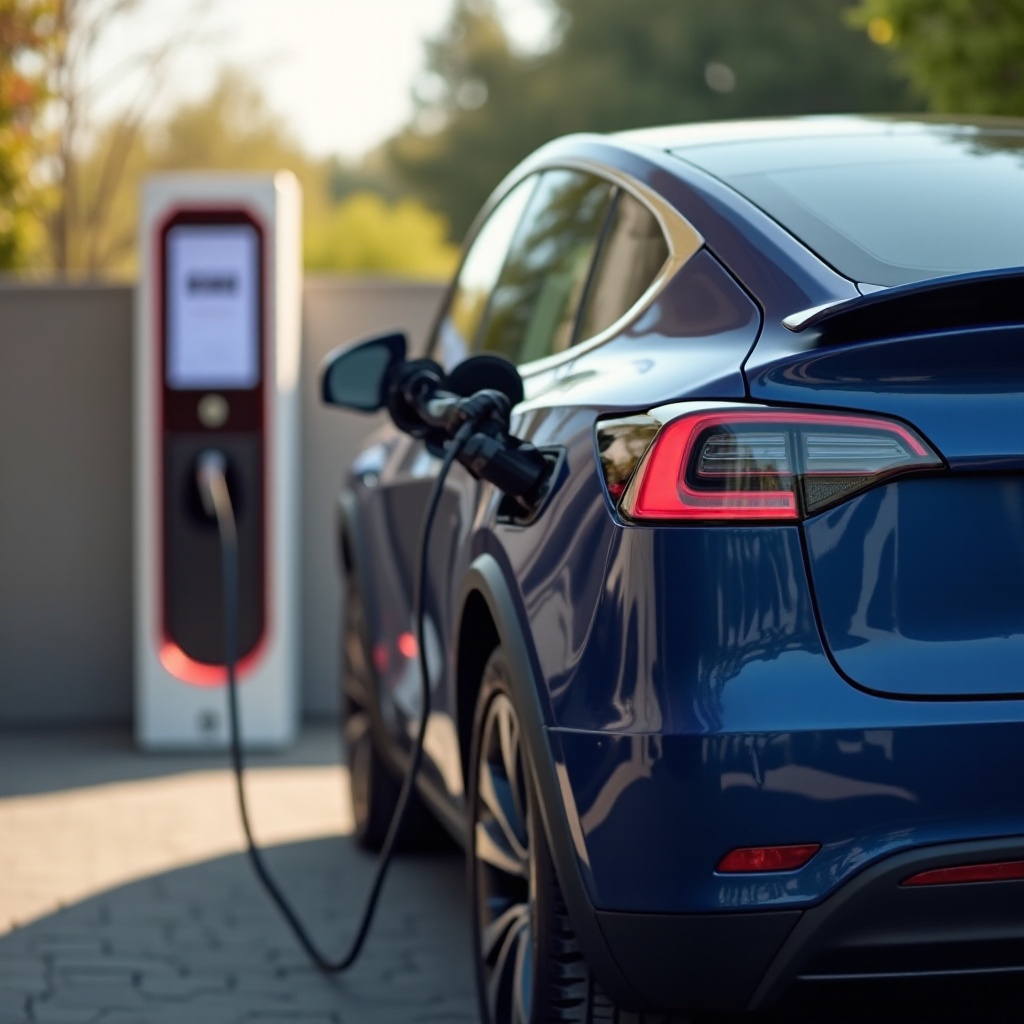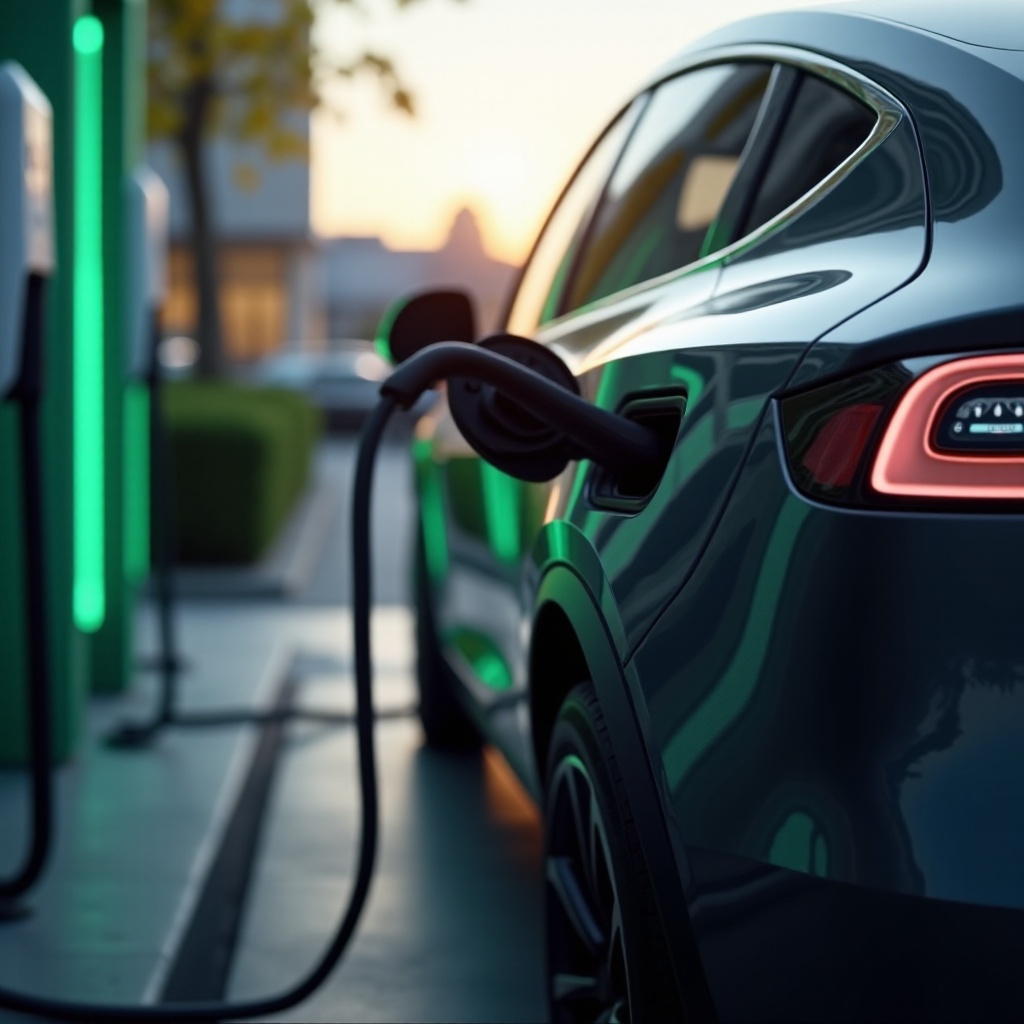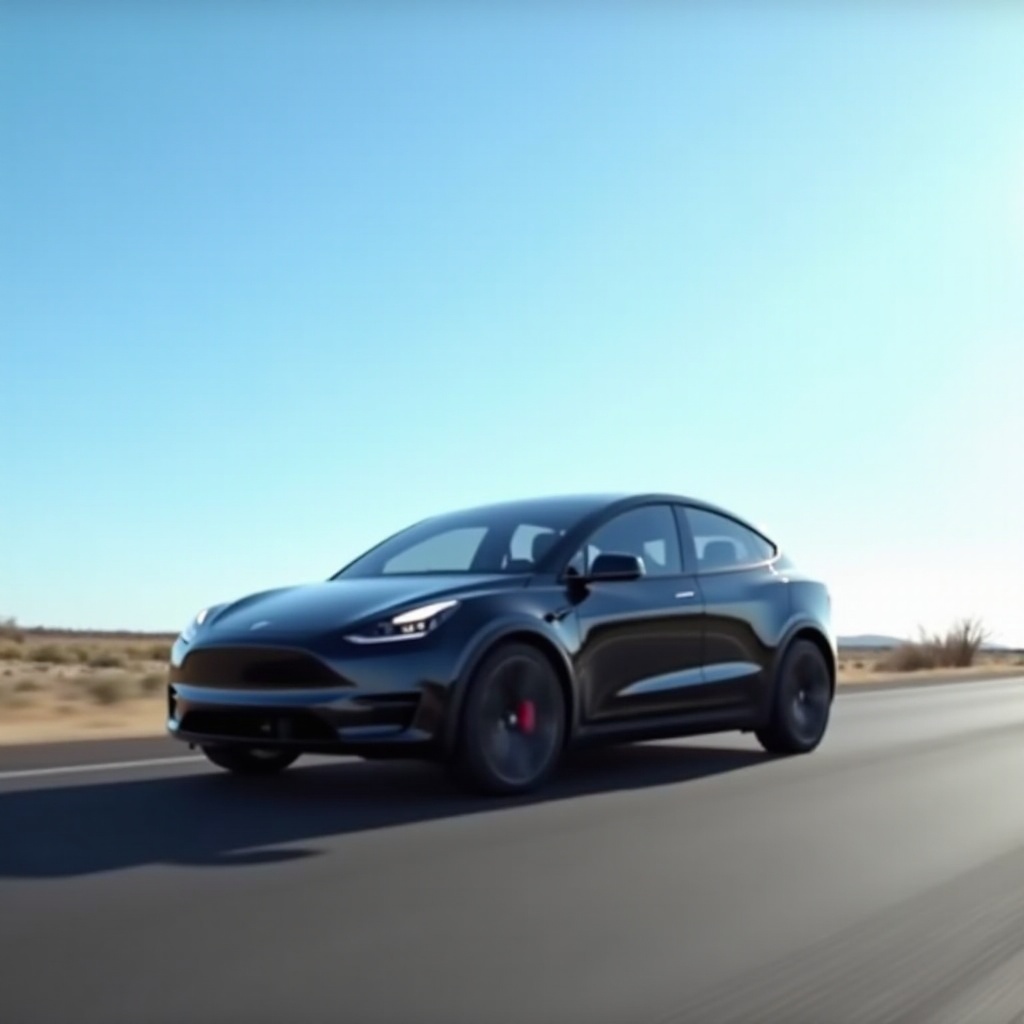Introduction
Switching to electric vehicles (EVs) like the Tesla Model Y comes with several benefits, including environmental sustainability and reduced fuel costs. However, understanding how much electricity your EV requires for charging can be a bit challenging. Charging an EV is a bit different from fueling a traditional car, involving kilowatt-hours (kWh) instead of gallons or liters. Knowing the kWh required to charge your Tesla Model Y helps you estimate charging costs, understand energy consumption, and plan your charging schedule. This comprehensive guide will walk you through the basics of EV charging, the battery requirements of a Tesla Model Y, factors influencing energy consumption, and a detailed calculation of the kWh needed for a full charge.

Basics of Electric Vehicle (EV) Charging
Electric vehicles store energy in batteries, which need to be recharged periodically to keep the vehicle running smoothly. kWh is a standard unit for measuring electric energy consumption. For EVs, kWh determines how much energy a battery can store and how much energy is used during charging.
EV charging can be done at different levels:
1. Level 1 Charging: This uses a standard household outlet (120 volts). It’s the slowest method, adding about 3-5 miles of range per hour of charging.
2. Level 2 Charging: This requires a 240-volt outlet, like those used for major home appliances. It’s faster, adding approximately 25 miles of range per hour.
3. DC Fast Charging: These public stations can charge your EV very quickly, adding up to 80 miles of range in 20 minutes.
Understanding these basics is crucial for planning and managing your Tesla Model Y’s charging schedule efficiently.

Understanding Tesla Model Y Battery and Its Energy Requirements
The Tesla Model Y comes equipped with a high-capacity battery pack, designed to offer a substantial driving range. There are two primary versions of the Model Y battery:
1. Long Range Model: Approximately 75 kWh battery capacity.
2. Performance Model: Similar capacity but tuned for higher performance.
Both versions can cover an impressive range on a full charge:
– The Long Range Model offers around 326 miles of range.
– The Performance Model delivers approximately 303 miles of range.
Having an understanding of the battery size and range is essential to estimating how much kWh you need to charge your Tesla from zero to 100%.
Factors Influencing Energy Consumption
Energy consumption in an EV like the Tesla Model Y isn’t constant. Various factors can influence how much energy you’ll need:
1. Driving Habits: Aggressive driving consumes more energy. Speed, acceleration, and frequent braking impact energy usage.
2. Weather Conditions: Cold weather can reduce battery efficiency, requiring more energy to maintain optimum performance.
3. Terrain: Uphill driving consumes more energy compared to flat terrain due to increased resistance.
4. Vehicle Load: Carrying extra weight affects energy consumption; lighter cars require less energy.
5. Climate Control: Using the car’s heating or air conditioning also impacts energy usage, especially during extreme weather.
By understanding these factors, you can implement strategies to maximize battery efficiency and reduce energy consumption while driving your Tesla Model Y.
Calculating kWh to Charge a Tesla Model Y
Full Charge Calculation
To calculate the kWh needed to fully charge your Tesla Model Y, you should know your battery’s capacity and the current state of charge. For instance:
– If your battery has a 75 kWh capacity and it’s at 10%, you’ll need to charge 90% of the battery’s capacity.
– Calculation:
– Total capacity: 75 kWh
– Needed charge: 90% of 75 kWh = 0.90 * 75 = 67.5 kWh
Partial Charge Scenarios
Not all charging sessions require a complete charge:
– For a quick top-up to 50%:
– Current charge level: 25%
– Target charge level: 50%
– Needed charge: 25% of 75 kWh = 0.25 * 75 = 18.75 kWh
Charging Efficiency and Energy Loss
Chargers aren’t 100% efficient. Energy loss during charging is typically around 10-15%. Including a 10% loss:
– Needed charge: 67.5 kWh
– Total kWh required = 67.5 kWh / 0.90 ≈ 75 kWh
This explains why effective calculations must consider both the battery’s capacity and charger efficiency.

Comparing Home and Public Charging Costs
Charging a Tesla Model Y at home versus public stations impacts your costs significantly.
Home Charging:
– Let’s assume average electricity costs are $0.13 per kWh.
– For a full charge: 75 kWh * $0.13 = $9.75
Home charging is convenient and cheaper but may require overnight charging due to slower speeds.
Public Charging:
– Public stations often charge premium rates, around $0.25-$0.30 per kWh.
– Using $0.28 average, a full charge: 75 kWh * $0.28 = $21.00
Public stations provide faster charges but at higher costs.
Determining where and how you charge impacts both convenience and expense.
Conclusion
In summary, knowing how much kWh it takes to charge your Tesla Model Y helps you plan costs and improve your EV experience. Whether opting for home or public charging, understanding factors influencing energy consumption ensures your car’s battery remains efficient. Balancing convenience and cost is key to a seamless EV ownership experience.
FAQs
How long does it take to fully charge a Tesla Model Y at home?
Using a Level 2 charger (240V), it typically takes 8-12 hours for a full charge.
What is the cost difference between home charging and public charging stations?
Home charging costs about $9.75 per full charge, while public stations can cost around $21.00.
Does charging frequency affect the battery life of a Tesla Model Y?
Frequent charging does not significantly impact battery life. Tesla’s Battery Management System (BMS) optimizes battery health.
Frequently Asked Questions
How long does it take to fully charge a Tesla Model Y at home?
Using a Level 2 charger (240V), it typically takes 8-12 hours for a full charge.
What is the cost difference between home charging and public charging stations?
Home charging costs about $9.75 per full charge, while public stations can cost around $21.00.
Does charging frequency affect the battery life of a Tesla Model Y?
Frequent charging does not significantly impact battery life. Tesla’s Battery Management System (BMS) optimizes battery health.


